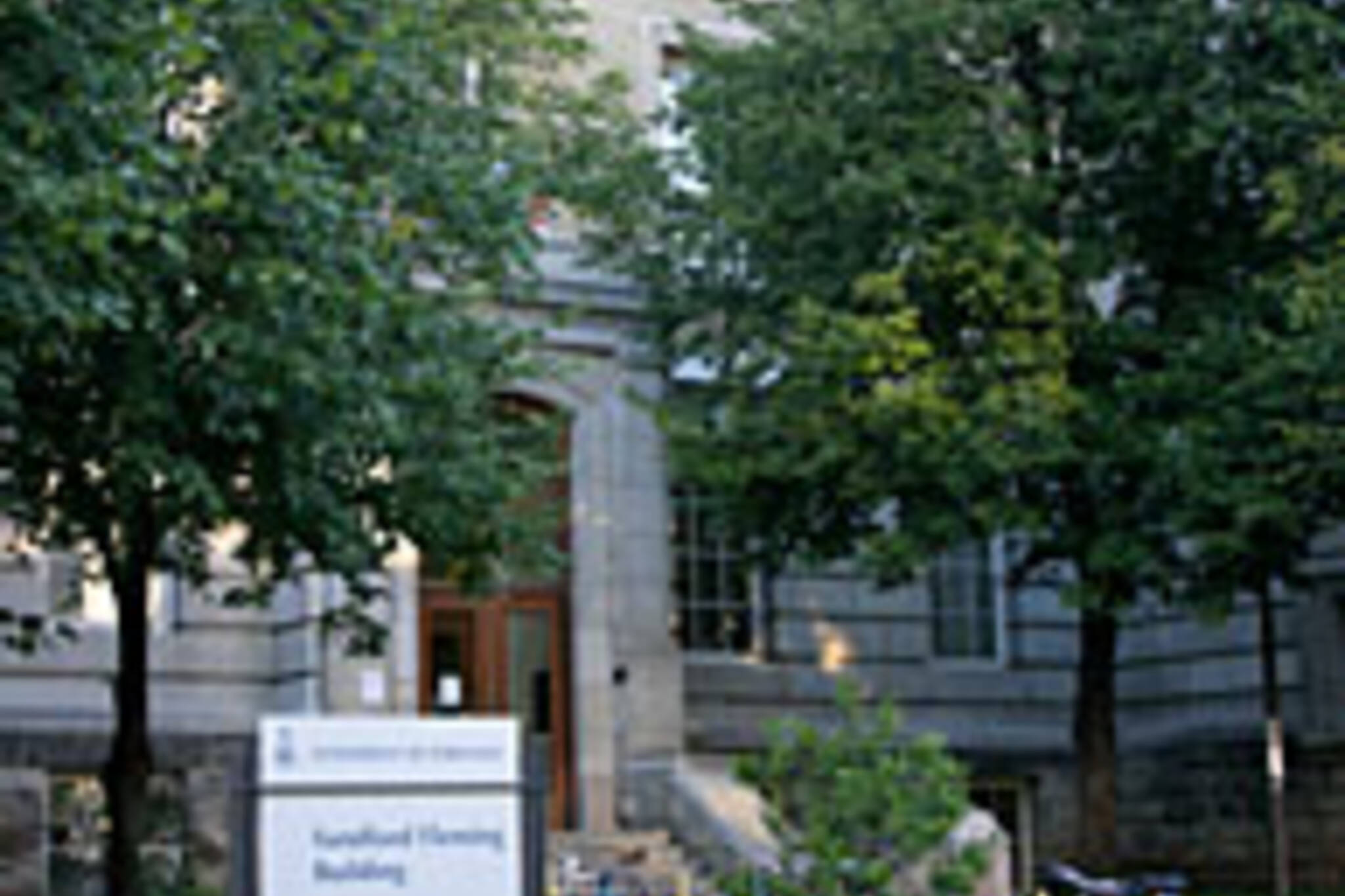
March of the Lawyers
If you were a science or engineering student you were probably jealous of them - they of only 12 hours of class weekly. They were the liberal arts students, and doubtlessly you mocked them mercilessly; bragging about your job opportunities; asking if anybody was going to pay them to fix poems.
Liberal arts students always held out the defense that a liberal arts education prepared them for the world ahead, and for such respected jobs as teaching or law.
Today in Toronto those artsies got a chance (as they do three other times a year) to put those claims into practice, and to spend a saturday separating the lawyer would-bes from the retail will-bes. Today humanity students from across The City came to write the LSAT, and I, in the interests of journalism (and making my parents happy) joined them.
I'm always unsure what to think about the LSATs; they're designed to seperate the wheat from the chaff of prospective lawyers, but when most LSATers already have at least two years of university under their belt should there really be any chaff to separate? What does it say about our education system when relatively easy questions, such as the one below, are only answered correctly by a third of the - university educated - students who attempt it?
It is a physically demanding test - six sections of 35 minutes each, with only a 10 minute break between them. No food or drink is allowed, and the drone of the proctor giving instructions at the beginning is enough to lull even the most excited student to sleep.
Six hours later, they exited the Sanford Fleming building. Some with new hope for a six-figured salary, others with only the hope that they could try again later. Myself, I was just glad to see sunlight and toilets that I didn't need to ask permission to use.
(Question and answer taken from www.LSAC.org)
"Situation: In the island nation of Bezun, the government
taxes gasoline heavily in order to induce
people not to drive. It uses the revenue from
the gasoline tax to subsidize electricity
in order to reduce prices charged for
electricity.
Analysis: The greater the success achieved in meeting
the first of these objectives, the less will be
the success achieved in meeting the second.
The analysis provided for the situation above would be
most appropriate in which one of the following situations?
(A) A library charges a late fee in order to induce
borrowers to return books promptly. The
library uses revenue from the late fee to
send reminders to tardy borrowers in order
to reduce the incidence of overdue books.
(B) Amail-order store imposes a stiff surcharge
for overnight delivery in order to limit use of
this option. The store uses revenue from the
surcharge to pay the extra expenses it incurs
for providing the overnight delivery service.
(C) The park management charges an admission
fee so that a park's users will contribute to
the park's upkeep. In order to keep admission
fees low, the management does not
finance any new projects from them.
(D) A restaurant adds a service charge in order to
spare customers the trouble of individual
tips. The service charge is then shared
among the restaurant's workers in order to
augment their low hourly wages.
(E) The highway administration charges a toll for
crossing a bridge in order to get motorists to
use other routes. It uses the revenue from
that toll to generate a reserve fund in order to
be able one day to build a new bridge."
So that's the LSAT - could you handle it?
Latest Videos
Latest Videos
Join the conversation Load comments







